Product Name
Calcium Chloride Prill
Product Type
RXSOL-81-6010-050
Company Details:
RX MARINE INTERNATIONAL
105, A wing , BSEL TECH PARK.
VASHI, NEW BOMBAY 400703 INDIA
Phone
+91 22 27611360 / 27815540
Fax
+91 22 2781 1318 :::AOH :0091 9322594669
Email
mail@rxmarine.com
COMPONENT
CAS#
% BY WEIGHT
Calcium Chloride
10043-52-4
93-100%
WARNING! causes irritation to skin, eyes and respiratory tract. Harmful if swallowed or inhaled.
Inhalation
:
granular material does not pose a significant inhalation hazard, but inhalation of dust may cause irritation of the respiratory tract, with symptoms of coughing and shortness of breath.
Ingestion
:
low toxicity material may cause serious irritation of the mucous membrane due to heat of hydrolysis. Large amounts can cause gastrointestinal upset, vomiting, abdominal pain.
Skin
:
Solid may cause mild irritation on dry skin ; strong solutions or solid in contact with moist skin may cause severe irritation, even burns.
Eye
:
Hazard may be either mechanical abrasion or, more serious, burns from heat of hydrolysis and chloride irritation.
Keep away from heat and ignition sources. May be harmful if swallowed. Avoid breathing vapors or dust. Use with adequate ventilation. Avoid contact with eyes, skin, and clothes. Wash thoroughly after handling. Keep container closed.
FIRST AID:
SKIN
:
wipe off excess material from skin then immediately flush skin with plenty of water for at least 15 minutes. Remove contaminated clothing and shoes. Get medical attention. Wash clothing before reuse. Thoroughly clean shoes before reuse.
EYES
:
immediately flush eyes with plenty of water for at least 15 minutes, lifting lower and upper eyelids occasionally, get medical attention immediately.
INHALATION
:
remove to fresh air. If not breathing, give artificial respiration. If breathing is difficult, give oxygen. Get medical attention.
INGESTION
:
Induce vomiting immediately as directed by medical personnel. Never give anything by mouth to an unconscious person. Get medical attention.
NOTE TO PHYSICIAN:
:
oral ingestion may cause serum acidosis.
FLASH POINT: N.D.
(TAGLIABUE CLOSED CUP)
LOWER EXPLOSIVE LIMIT: N.D.
UPPER EXPLOSIVE LIMIT: N.D.
FIRE: Not considered to be a fire hazard.
EXPLOSION:Not considered to be an explosive hazard.
EXTINGUISHING MEDIA:
use any means suitable for extinguishing surrounding fire.
SPECIAL FIRE FIGHTING PROCEDURES:
As in any fire, wear a self-contained breathing apparatus pressure-demand (MSHA/NIOSH approved or equivalent) and full protective gear. At high temperatures or when moistened under fire conditions, calcium chloride may produce toxic irritating fumes.
STEPS
TO BE TAKEN IN CASE MATERIAL IS RELEASED OR SPILLED:
Ventilate area of leak or spill. Wear personal protective equipment as specified in section 8. Spills: sweep up and containerize for reclamation or disposal. Vacuuming or wet sweeping may be used to avoid dust dispersal. Small amounts of residue may be flushed to sewer with plenty of water.
HANDLING:
Handle all chemicals with care.
STORAGE:
keep in a tightly closed container, stored in a cool, dry, ventilated area. Protect against physical damage. Moist calcium chloride and concentrated solutions can corrode steel. When exposed to the atmosphere, calcium chloride will absorb water and form a solution. Containers of this this material may be hazardous when empty since they retain product residues (dust, solids); observe all warnings and precautions listed for the product.
ENGINEERING CONTROLS:
Local exhaust ventilation may be necessary to control any air contaminants to within their exposure limits. Local exhaust ventilation is generally preferred because it controls the emissions of the contaminants at its source, preventing dispersion of it into general work area. Please refer to the ACGIH document’ “INDUSTRIAL VENTILATION. A manual of recommended practices” Most recent edition, for details.
RESPIRATORY PROTECTION:
for conditions of use where exposure to dust or mist is apparent and engineering controls are not feasible, a particulate respirator (NIOSH TYPE N95 OR BETTER FILTERS) may be worn. If oil particles (E.G. lubricants, cutting fluids, glycerine, etc.) are present, use a NIOSH type R or P filters. For emergencies or instances where the exposure levels are not known, use a full- face positive-pressure, air-supplied respirator. WARNING: Air –purifying respirators do not protect workers in oxygen-deficient atmospheres.
SKIN PROTECTION: When contact is likely wear chemical resistant gloves, clean body-covering clothing and boots.
EYE PROTECTION:
Wear safety glasses with side shields or goggles and or full face shield where dusting or splashing of solutions is possible. Maintain eye wash fountain and quick-drench facilities in work area.
EYE PROTECTION: Wear safety glasses with side shields or goggles and or full face shield where dusting or splashing of solutions is possible. Maintain eye wash fountain and quick-drench facilities in work area.
OTHER PROTECTIVE EQUIPMENT:
Maintain good housekeeping in work area. Dust deposits on floors and other surfaces may pick up moisture and cause the surfaces to become slippery and present safety hazard.
HYGIENIC PRACTICES:
Wash hands before eating. Use only with adequate ventilation. Remove contaminated clothing and wash before reuse
APPEARANCE:
white or grey –white granules
ODOR:
odorless
DENSITY:
2.15
pH:
8-9 Aqueous solution
VAPOR DENSITY:
N.D.
VAPOR PRESSURE:
N.D.
PHYSICAL STATE:
granules.
SOLUBILITY IN WATER:
freely soluble in water, exothermic.
MELTING POINT:
772C (1422F)
CONDITIONS TO AVOID
:
Incompatibles.
INCOMPATIBILITY
:
Avoid contact with methyl vinyl ether, water, zinc, bromine trifluoride, mixtures of lime and boric acid, barium chloride, and 2-furan percarboxylic acid. Metals will slowly corrode in aqueous calcium chloride solutions. Aluminum (and alloys) and yellow brass will be attacked by calcium chloride.
HAZARDOUS DECOMPOSITION
:
Emits toxic chlorine fumes when heated to decomposition. May form hydrogen chloride in presence of sulfuric or phosphoric acids or with water at elevated temperatures.
HAZARDOUS POLYMERIZATION
:
Will not occur under normal use and storage conditions.
CHEMICAL STABILITY
:
This product is stable under normal storage conditions .Substance will pick up moisture from the air and go into solution if exposed in open containers.
ORAL
: Product is classified as moderately irritating to the digestive tract.
DERMAL
: Product is classified as moderately irritating to the skin.
INHALATION
: Product is classified as moderately irritating to the eyes.
ECOTOXICITY
: No product information is available.
CHEMICAL FATE INFORMATION
: No product information is available.
WASTE DISPOSAL
: Consult local, state, or federal regulatory agencies for acceptable disposal procedures and disposal locations. Disposal in streams or sewers may be prohibited by federal, state, and local regulations.
RCRA STATUS
: None
(NON-BULK SHIPMENTS)
D.O.T. PROPER SHIPPING NAME
: Not Regulated
D.O.T. TECHNICAL NAME
: Non-hazardous for D.O.T. purposes
D.O.T. HAZARD CLASS
: N/A
D.O.T. UN NUMBER
: N/A
HAZARD SUBCLASS
: N/A
PACKING GROUP
: N/A
RESP. GUIDE PAGE
: N/A
(BULK SHIPMENTS)
D.O.T. PROPER SHIPPING NAME
: Not Regulated
D.O.T. TECHNICAL NAME
: Non-hazardous for D.O.T. purposes
D.O.T. HAZARD CLASS
: N/A
D.O.T. UN NUMBER
: N/A
HAZARD SUBCLASS
: N/A
PACKING GROUP
: N/A
RESP. GUIDE PAGE
: N/A
T.D.G. PROPER SHIPPING NAME
: Not Regulated
T.D.G. TECHNICAL NAME
: N/A
T.D.G. HAZARD CLASS
: N/A
T.D.G. UN NUMBER
: N/A
HAZARD SUBCLASS
: N/A
PACKING GROUP
: N/A
RESP. GUIDE PAGE
: N/A
IMDG PROPER SHIPPING NAME
: Not Regulated
IMDG TECHNICAL NAME
: N/A
IMDG HAZARD CLASS
: N/A
IMDG UN NUMBER
: N/A
HAZARD SUBCLASS
: N/A
PACKING GROUP
: N/A
EmS No.
: N/A
CERCLA – SARA HAZARD CATEGORY:
SECTION 311/312: This product has been reviewed according to the EPA ‘Hazard Categories’ promulgated under Sections 311 and 312 of the Superfund Amendments and Reauthorization Act of 1986 (SARA Title III) and is considered, under applicable definitions, to meet the following categories:
ACUTE HEALTH HAZARD
SARA SECTION 313: This product does not contain substances subject to the reporting requirements of Section 313 of Title III of the Superfund Amendments and Reauthorization Act of 1986 and 40 CFR Part 372:
TSCA STATUS:
All components of this product are listed on the Toxic Substance Control Act Inventory or are excluded from the listing requirements.
INTERNATIONAL REGULATIONS:
CANADIAN WHMIS: This MSDS has been prepared in compliance with Controlled Product Regulations except for the use of the 16 headings.
CANADIAN WHMIS CLASS: non-controlled
CANADIAN ENVIRONMENTAL PROTECTION ACT:
All components of this product are listed on the Canadian Domestic Substance List (DSL).
Text of R and S phrase codes used in this safety data sheet:- R34: Causes burns; R36: Irritating to eyes; R37:Irritating to respiratory system; R41: Risk of serious damage to eyes. The information provided about the product on this Safety Data Sheet has been compiled from knowledge of the individual constituents The data given here is based on current knowledge and experience. This Safety Data Sheet describes the product in terms of safety requirements and does not signify any warranty with regard to the product's properties The data given here only applies when product used for proper application(s). The product is not sold as suitable for other applications usage in such may cause risks not mentioned in this sheet. Do not use for other application(s) without seeking advice from manufacturer.
|
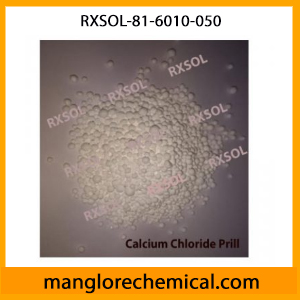

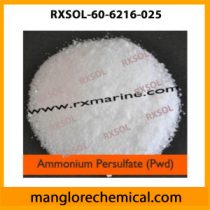

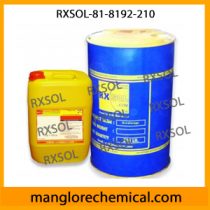
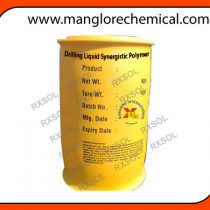
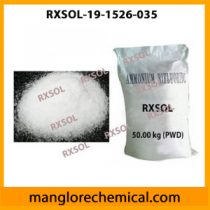
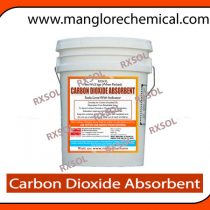
Reviews
There are no reviews yet.